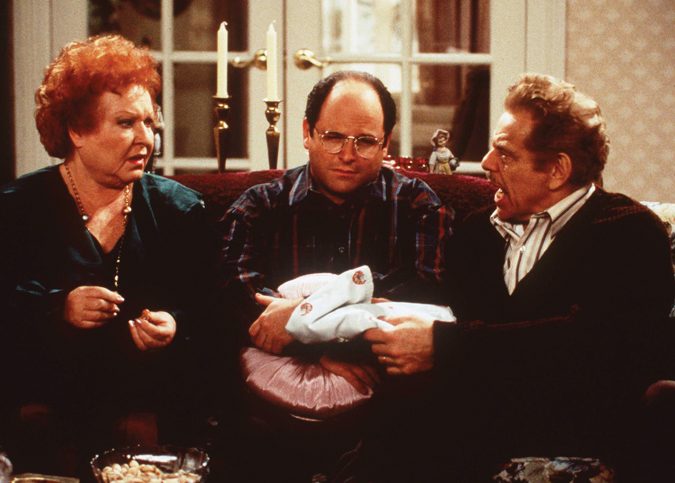Frank Costanza: Many [holiday seasons] ago, I went to buy a doll for my son. I reached for the last one they had, but so did another man. As I rained blows upon him, I realized there had to be another way…
Cosmo Kramer: What happened to the doll?
Frank Costanza: It was destroyed. But out of that a new holiday was born … a Festivus, for the rest of us!
Cosmo Kramer: That must have been some kind of doll.
Frank Costanza: She was.
And so it begun…a holiday, born in earnest response to the over-inflated commercialism of an increasingly uncaring world, a holiday meant to elucidate both man’s spiritual decline and articulate a one-world, unifying theme; the inclusionary tactics of an open-ended invitation…”for the rest of us!”
If this all sounds hyperbolic and overwrought, it is. But, for a holiday born of a comedic skit, what more can you ask for? The fact that the holiday has taken off like it has, should only serve as proof that the world was waiting for something like this. The Festivus holiday, introduced to an American TV watching public on December 18, 1997 through an anti-holiday episode of the now defunct show, Seinfeld, is said to be celebrated December 23rd of each year (although some celebrate it on other days as well, primarily due to its anti-holiday component).
The word Festivus, in this sense, was coined by scriptwriter Dan O’Keefe, who worked on the American sitcom, and according to him the name “just popped into my head.” The English word festive derives from Latin “festivus,” which in turn derives from festus “joyous; holiday, feast day.”
This well-celebrated holiday parody serves as an alternative to participating in the pressures and commercialism of any Holiday season. Think of it as a form of playful consumer resistance. Originally a family tradition of O’Keefe, the holiday entered popular culture after it was made the focus of a 1997 episode of the program.
There are basically three communal components and a couple of decorative points that you will need to know to celebrate this new holiday.
The usual holiday tradition of a tree is manifested in the form of an unadorned aluminum pole, which is in direct contrast to normal holiday materialism. Those attending Festivus may also participate in the “Airing of Grievances” which is an opportunity to tell others how they have disappointed you in the past year, followed by a Festivus dinner, and then completed by the “Feats of Strength” where the head of the household must be pinned. All of these traditions are based upon the events in the Seinfeld episode. Here is a breakdown of how they play out:
Festivus ‘Tree’
There is a Festivus pole that is purposefully unadorned, as a direct – if minimalistic – response to the ubiquitous Holiday tree. It should also be pointed out that Fesitvus miracles are likely to happen all the time. The only thing is, Festivus miracles are normally easily explainable things which we pretend are miracles, for effect. Feel free to call out your own miracle at will (me writing this article is a Festivus miracle – Yeah!). Then there are three official things that have to happen. The first of them, like any good holiday, starts with a family dinner.
Festivus dinner
A celebratory dinner is held on the evening of Festivus that is normally outside the norm of holiday food. In the Seinfeld episode, the on-air meal was shown to be some sort of meatloaf and spaghetti with red sauce. The original holiday dinner in the O’Keefe household featured turkey or ham followed by a Pepperidge Farm cake decorated with M&M’s, as described in detail in Dan O’Keefe’s The Real Festivus.
Airing of Grievances
The “Airing of Grievances,” takes place immediately after the Festivus dinner has been served. It consists of each person lashing out at others and the world about how they have been disappointed in the past year. Think about it, how many of your family functions have ended in one big fight by the end of the night? Wouldn’t it be better to just get that out of the way at the beginning?
Feats of Strength
The “Feats of Strength” is the final tradition observed in the celebration of Festivus, celebrated immediately following, or during, the Festivus dinner. The head of the household selects one person at the celebration and challenges that person to a wrestling match. Tradition states that Festivus is not over until the head of the household is pinned during the match. Again I ask, how many of your family functions threaten to get physical? Wouldn’t it be better to get dad involved and wrestle it out at the beginning so we know for certain who the king of the clan is?
Whatever holiday you decide to celebrate this year, the bazaar team wishes you a wonderful holiday season full of friends, family, and food. See you around the Festivus pole!











